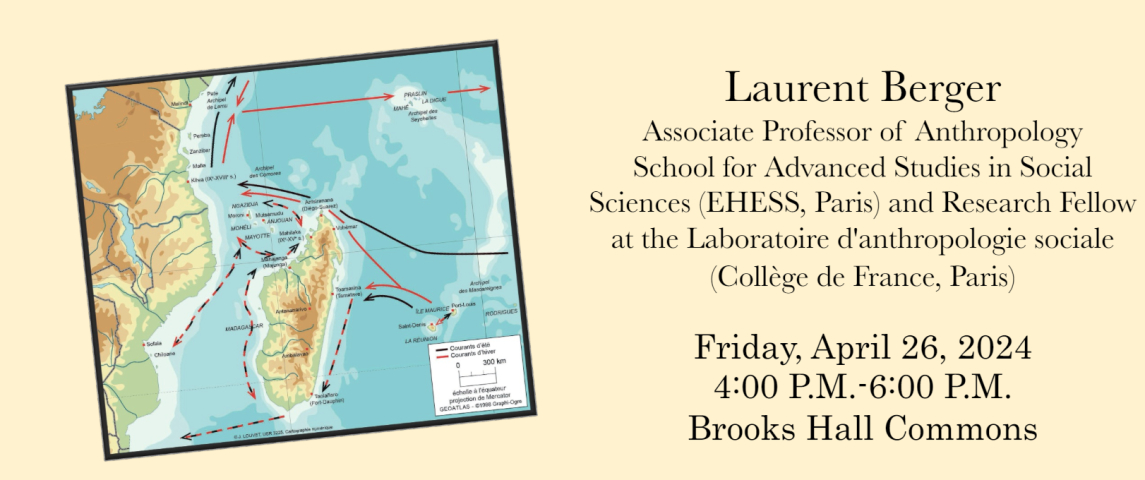
"A Global History of Insular Worlds in the Western Indian Ocean: The Periodization of Transfers and Sociocultural Changes Over a Millennium"
Laurent Berger
Associate Professor of Anthropology School for Advanced Studies in Social Sciences (EHESS, Paris) and Research Fellow at the Laboratoire d'anthropologie sociale (Collège de France, Paris)
This talk presents the long-term connections and interdependent trajectories of settlement and development of the islands of Madagascar and the archipelagos of the Comoros, Mascarene Islands and Seychelles in the Western Indian Ocean, between the 8th and 19th centuries. These islands and archipelagos constitute a regional area of acculturation unique in the world, as an Afro-Eurasian civilizational melting pot, forged in one of the last inhabited places of the planet, at the crossroads of Bantu, Arab-Persian, Austronesian, Indian and Western influences, through the centuries-old relations maintained with the Indian Ocean rim, in the west (the Red Sea, the Persian Gulf, the Limpopo and Zambezi rivers, the Swahili islands: Zanzibar, Kilwa, Pemba, Mafia, Pate), as well as to the east (the India of Gujarat, Sindh and the Malabar coast; the Indonesia of Sumatra and Java, the Riau archipelago, Sulawesi and Borneo). The unity of these island worlds is based primarily on common climatic and geographical conditions, which, through deep-sea navigation and coastal shipping, until the advent in the 19th and 20th centuries of steamboats, roads with carriageways and air and sea container lines, created the framework and rhythm of exchanges with the overseas territories. The unity of these island worlds is based secondly on the marginal and then peripheral position that their populations occupy in the exchange networks and the interregional division of labor set up through the export, by their elites, of a servile workforce, foodstuffs (rice, sugar, cattle) and raw materials (wood, minerals, aromatic resins) in order to obtain, until the 19th century, textiles, pearls, precious metals, ceramics and weapons. The objective of this talk is to consider the criteria of historical periodization, highlighting the phases of convergence and divergence of the trajectories of settlement and development of these island worlds through the combined arrival of Bantu and Austronesian populations distinct from the Swahili rise, the regional propagation of Islam and long-distance maritime trade, the insular state formation process and the Indian-oceanic slave trade, the struggles for influence of the Western, Omani and island empires until their colonial annexation.
